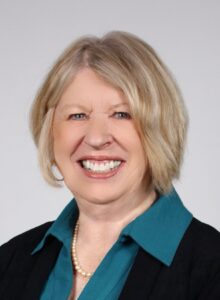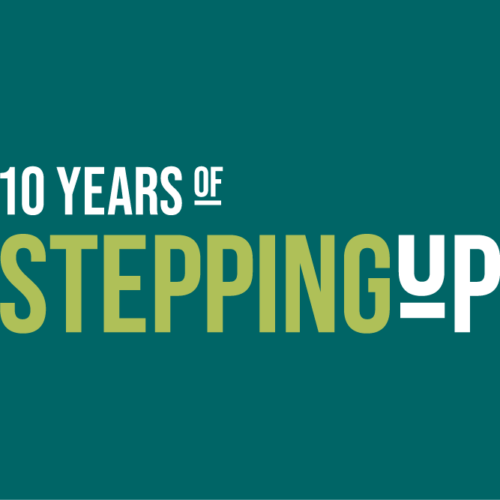Local Criminal Justice System Innovations in Mental Health Services: Q&A with CSG Justice Center Advisory Board Member Dr. Doreen Williams
The CSG Justice Center Advisory Board establishes the policy and project priorities of the organization. The board features a cross-section of leaders who shape criminal justice policy in various parts of the country.
Dr. Doreen Williams is in her third term as a Rockdale County commissioner in Georgia. As commissioner, she helped spearhead the Stepping Up initiative in Rockdale County in 2015 and advised on the initiative nationally. Commissioner Williams serves as chair of the Health and Human Services Policy Steering Committee for the Association of County Commissioners of Georgia. She is also on the board of directors for View Point Health, the local community service board that she has served on for 15 years, and has been a member of the NACo Health Steering Committee for 9 years.
Editor’s note: Answers have been lightly edited for clarity.

Dr. Doreen Williams
What inspired you to join the CSG Justice Center Advisory Board? What unique perspective do you feel you bring to the board?
The Bureau of Justice Assistance awarded a Justice and Mental Health Collaboration Program grant to Rockdale County with the CSG Justice Center as the technical assistance provider, and this grant focused on providing support for incarcerated individuals with mental health and substance use disorders. Through this work, I became aware of the CSG Justice Center’s research and how its efforts aligned with what we were doing to improve outcomes for people coming out of incarceration. As a local elected official, I firmly believe this work is where the “rubber meets the road.” On-the-ground personnel interact every day with this population, and I am excited to share the power and success of that work with the advisory board, as well as learn about new ideas being implemented in other locations.
What has solidified your commitment to improving the criminal justice system?
I first heard about the Stepping Up initiative at its inaugural introduction at a National Association of Counties conference in 2015. I have numerous family members with mental health disorders, including bipolar disorder. And while none have been incarcerated, I knew that was only because of friends and colleagues who had protected them and allowed them to avoid further consequences.
Hearing about Stepping Up also solidified my desire to want to do something in Rockdale County to improve the work of the criminal justice system locally. While treating, instead of incarcerating, people with mental health and behavioral health issues saves taxpayer dollars, it is the humane, person-centered approach that supports and stabilizes individuals, their families, and their communities.
Editor’s note: Learn more about Stepping Up and the initiative’s nationwide impact over the past 10 years.
What do you see as the biggest challenges facing the criminal justice system today?
I see two issues that create challenges for improving the criminal justice system locally and nationwide. First, much education needs to occur about the power of rehabilitation and recovery for law enforcement, the court system, and for communities. Second, for treatment to be timely and effective, there is a tremendous need for educated personnel to work in this arena, namely, mental health professionals, law enforcement, courts, nonprofits, faith-based organizations, and others.
What are some innovations happening in your state or field that you think could be successfully replicated across the country?
Rockdale County is in the process of opening a first-of-its-kind facility in Georgia that includes one building that will house a 24/7 crisis service center, a space for transitional beds, and a full-service addiction recovery support center (ARSC). The crisis service center will be available to the public as well as law enforcement—not unusual by itself, but the other two programs adjacent to it will provide unique opportunities. Having a space with transitional beds while someone is coming out of hospitalization or incarceration will allow a safe space while case managers work to find people suitable housing. The third space will tie all three together by providing a ready force of certified peer specialists. Those occupying the transitional beds will be able to receive support and education from programs at the ARSC during the day, while also connecting with mental health professionals next door. The power of peers from the ARSC will be undeniable as they work with those being served in both of the other two areas.
Editor’s note: Check out the CSG Justice Center’s tips for successfully implementing crisis stabilization units.
Learn more about the CSG Justice Center’s Advisory Board and its five newest members.
ABOUT THE AUTHOR

As the Stepping Up initiative marks its 10th year, America’s justice and behavioral health systems are facing a…
Read More19 states were recently granted permission by CMS to reimburse critical reentry services with Medicaid funding for up…
Read More The 10-Year Impact—and Future—of Stepping Up: Facing the Behavioral Health Crisis in Jails and Communities with Real Solutions
The 10-Year Impact—and Future—of Stepping Up: Facing the Behavioral Health Crisis in Jails and Communities with Real Solutions
As the Stepping Up initiative marks its 10th year, America’s justice and…
Read More A “Once in a Generation Opportunity” to Improve Reentry for Nearly 2 Million People
A “Once in a Generation Opportunity” to Improve Reentry for Nearly 2 Million People
19 states were recently granted permission by CMS to reimburse critical reentry…
Read More









